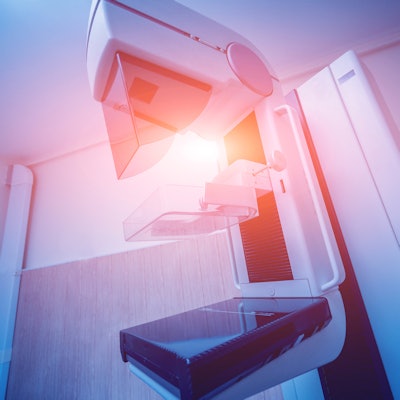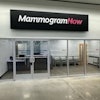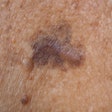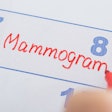
The COVID-19 pandemic led to sharp declines in screening mammograms among Medicaid beneficiaries in Louisiana, but those numbers rebounded to prepandemic levels, suggests research published January 19 in JAMA Network Open.
A team led by Yixue Shao, PhD, from Tulane University in New Orleans also found that increases in mammograms were most pronounced for non-Hispanic Black and Hispanic beneficiaries during the rebound period.
"Our study may provide new evidence of the association of the pandemic with screening mammography rates," Shao and colleagues wrote.
Screening mammography rates dropped sharply during the early days of the pandemic as breast imaging facilities temporarily closed and health resources were allocated toward combating the pandemic. Previous research also suggests that these closures exacerbated health disparities seen before the pandemic when it comes to race, ethnicity, and socioeconomic status.
However, the researchers noted that the pandemic's ties to screening mammography rates by race and ethnicity among Medicaid beneficiaries haven't been studied.
"Disparities associated with the pandemic are especially relevant for Medicaid beneficiaries living in Southern states given long-standing barriers to care, relatively low screening rates, and relatively high cancer mortality rates," they wrote.
Shao and colleagues explored this area, looking at screening mammography differences before and during the pandemic, focusing on race and ethnicity. They used Louisiana Medicaid claims data for non-dual-eligible beneficiaries between the ages of 50 and 64 who were continuously enrolled in Louisiana Medicaid from January 2018 through August 2021.
The researchers included data from a total of 43,926 female beneficiaries in their study. Out of these, 49.2% were non-Hispanic Black, 48.1% were non-Hispanic white, and 2.7% were Hispanic.
The team found that screening mammogram rates dropped to nearly zero during the first peak of COVID-19 infections in Louisiana, which took place in April 2020. These rates remained about 30% below prepandemic levels from May through August that same year. However, full rebounds were reported by September 2020 and remained at or above baseline levels through August 2021, the researchers reported.
When it came to race, the team found increases during the rebound period across all races and ethnicities studied compared with prepandemic rates. This included increases of 5.5 per 1,000 (17.6%) for non-Hispanic white women, 8.2 per 1,000 (22.2%) for non-Hispanic Black women, and 10.4 per 1,000 (25.3%) for Hispanic women. The researchers reported no significant differences in rate increases by race or ethnicity.
They called for future studies to find out whether delayed breast cancer screenings among Medicaid beneficiaries are tied to later-stage cancer diagnoses or poorer prognoses.



















